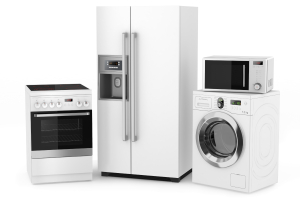What Can Happen If I Don’t Have The Right Dedicated Circuit?
Ever wonder what happens to electricity as it enters your home? Well, it goes through your circuit breaker or box fuse and feeds into individual circuits that power different sections of your home. Heavy duty appliances like your refrigerator or dryer require their own dedicated circuits to operate safely and efficiently.

Depending on the size of the appliance and the amount of power required to run that appliance, the size of the wire and circuit breaker will vary. For example, the appliance or electrical device may require 120 or 240-volts which is too much for a regular circuit to handle. Curious to find out which appliances need their own dedicated circuit?
See below:
- Blow Dryer
- Dishwasher
- Furnace
- Air conditioning units
- Wall oven
- Refrigerator
What happens if the right dedicated circuit is not used?
Fires. Melting. Breakdowns. If you don’t have the correct dedicated circuit, an appliance may draw more current than the circuit can handle. This can cause the wiring to overheat which may lead to melting or even worse, a fire. Luckily, circuit breakers are smart enough to sense too much current and can stop the surge before damage takes place. If your circuit breaker constantly trips, this is a warning sign that there is a potential hazard.
If you are remodeling your home or business or have recently purchased new electrical appliances are not sure if your home is prepared with the proper dedicated circuits, don’t hesitate to give Lon Lockwood Electric a call. Don’t risk the shutdown of critical appliances or a potential electrical fire!
